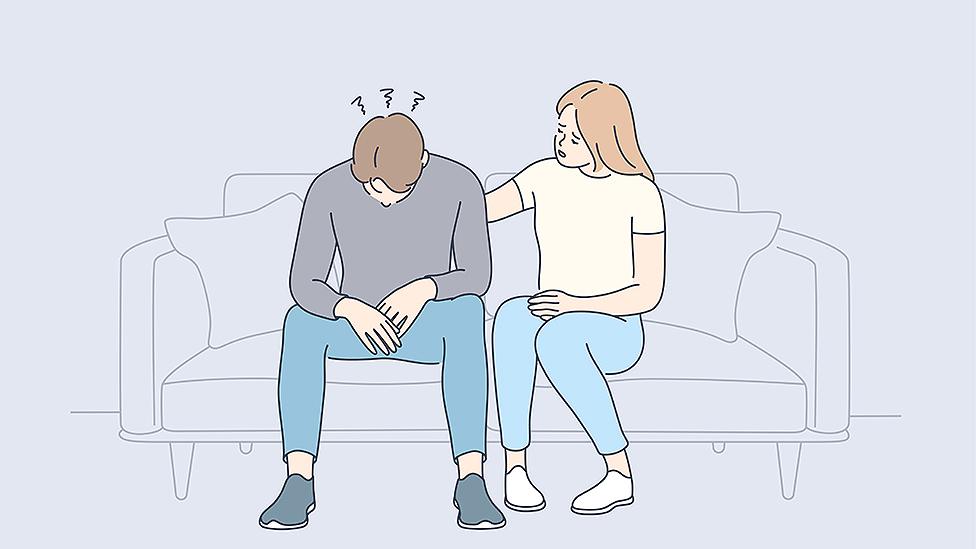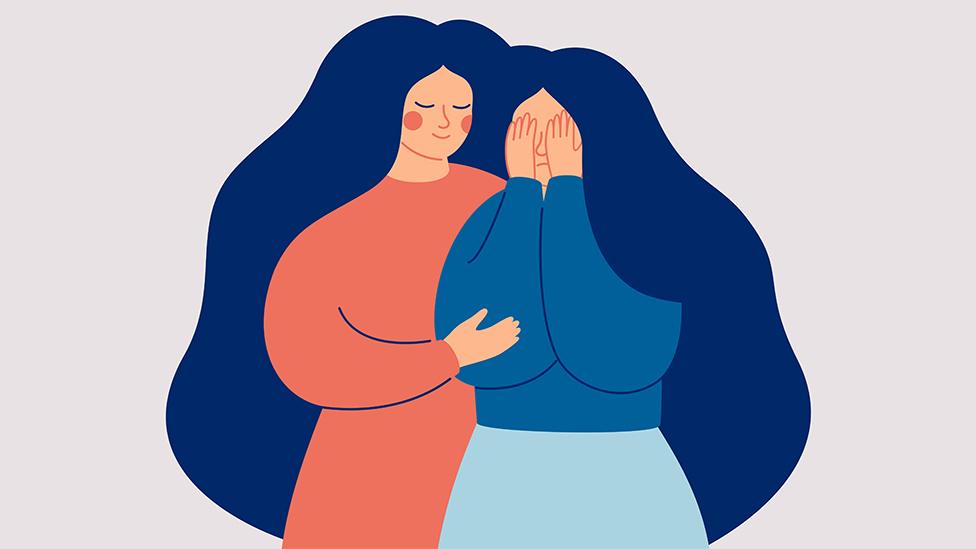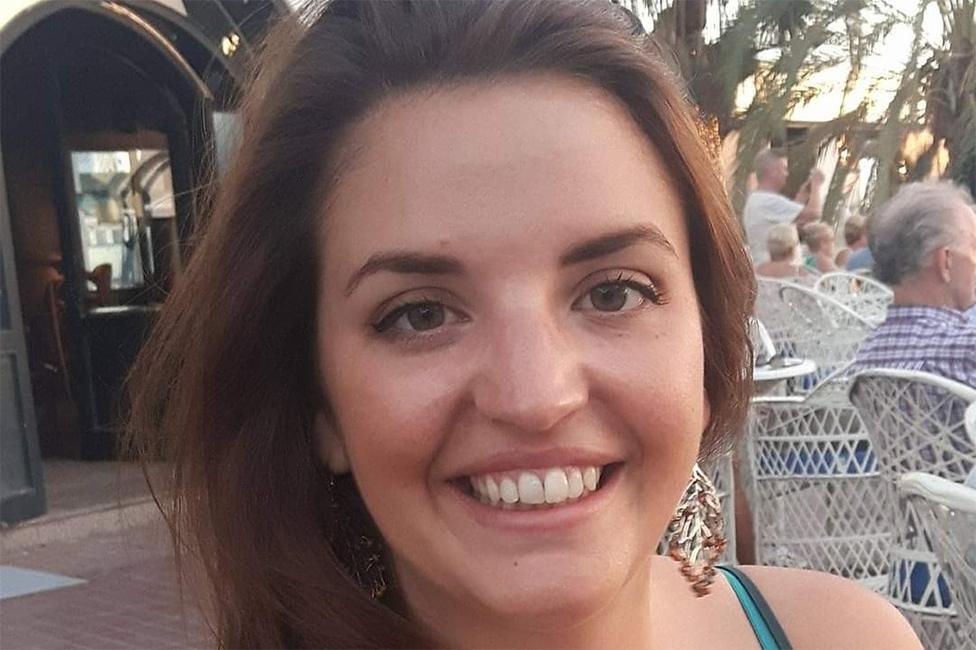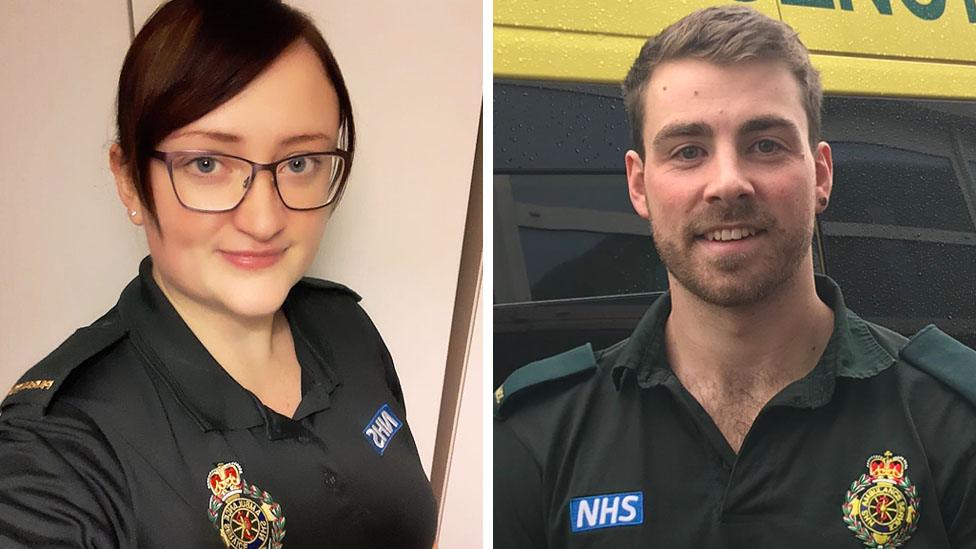Caroline Flack: What to do when someone tells you they feel suicidal
- Published

It can be hard to know how to react when someone close to you reveals they're struggling with their mental health and want to take their own life.
What do you say or do?
Tonight, a documentary on Caroline Flack airs on Channel 4, looking at the events leading up to the TV presenter's suicide in 2020.
And on Monday, presenter Roman Kemp opened up about his own struggles with mental health and the suicide of his close friend Joe Lyons for a BBC Three documentary.
We've been speaking to Alex Dodd, a volunteer from mental health charity Samaritans about what to do when someone opens up about their difficulties.
Take them seriously
"You can't solve their problems and you don't know what they're going through," Alex says.
"But if someone tells you about suicidal thoughts, just always take them seriously."

Caroline Flack took her own life in February 2020
Alex explains it's crucial to provide an environment where they have the courage to open up and feel supported.
"That's one of the hardest things that people can do, is to have that initial contact, and talk about how they're feeling."
Alex adds it can be human nature to interrupt with our own feelings, but it's vital not to do that.
Keep calm and don't judge
This is "one of the hardest things" especially when it's a family member, Alex explains.
"But they just want to open up, they can't think about anything. You staying calm is a really good thing to do at first."

Make them feel comfortable enough to open up, Alex says
It's important to give them the space to talk and not ask about stuff which could imply judgement.
"Asking questions like: 'What do you think your family will feel? How will they feel if you leave this world?' will make them feel really judged."
"They will just close up and not open up again to you."
Instead, ask open questions
The first thing Alex does is thank someone for calling and let them know she's there to help them work through how they are feeling - to try and make them comfortable to share more.
Open questions are a good way to get someone to talk, such as: "Can you tell me a bit more about why you're feeling this way? What made you get to this point?"
She says it's OK to ask about support networks and if they've received help before.

A loved one might get very emotional, so it's important to support them and stay calm yourself
"It's talking around how it got to that point and why they feel they can't go on any longer."
But don't just ask questions all the time.
"It's actually letting them speak, providing that silence for them, and just letting them get it off their chest."
Give physical support if need be
Our natural instinct might be to hug someone (Covid restrictions permitting), but the main thing is to make them feel comfortable.
"Some people don't like being hugged and would rather you keep that distance from them.

Physical contact can help the person feel cared for
"But if you are close to that person, and you know that a hug or that close contact would help, don't be afraid to hold their hand.
"Human contact is fantastic for building that bridge to physically know that someone's there," she adds.
Point them towards further help
Alex suggests giving advice on things they can do, such as speaking to a doctor or calling a support line.
"But if you feel that somebody is in immediate danger, you can call 999."

Alex is a volunteer with mental health charity Samaritans
She says ultimately, it has to be the person's decision to take the next step in getting help.
"But the fact they have opened up is a sign that they do want help and want to work through this."
"Feelings are only temporary. So it's getting to that point where they can say: 'This is my next step'."


Follow Newsbeat on Instagram, external, Facebook, external, Twitter, external and YouTube, external.
Listen to Newsbeat live at 12:45 and 17:45 weekdays - or listen back here.
Related topics
- Published10 March 2021

- Published10 February 2020

- Published6 September 2020

- Published30 October 2020
